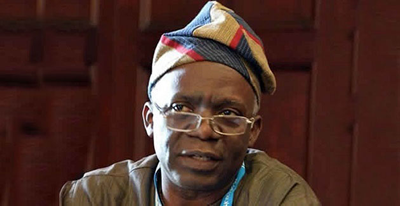A human rights lawyer and Senior Advocate of Nigeria (SAN), Femi Falana, has accused African leaders, who make up the Authority of Heads of State and Government at the Economic Community of West African States (ECOWAS), of failing to promote the rule of law. Falana also accused them of treating the decisions of the Community Court of Justice (ECOWAS Court) with disdain.
The lawyer, in a statement yesterday titled: ‘End Disobedience of ECOWAS Courts,’ said that the record of the court showed that 154 judgements had not been enforced by member states of the ECOWAS as of December 2024.
According to him, Nigeria has the highest, with 44 judgements, followed by Togo and Guinea, which have 27 and 15, respectively.
Others are Mali (10), Sierra Leone (nine), Niger (eight), Côte d’Ivoire (eight), Senegal (eight), Ghana (six), Benin (five), The Gambia (three), Liberia (four), Burkina Faso (five), Cape Verde (one), and Guinea Bissau (one).
“With respect, the ECOWAS leaders have failed to uphold democratic norms and the rule of law. Hence, the region has continued to witness an unconstitutional change of government.
Without any legal and political justification whatsoever, the leaders have treated the decisions of the Community Court of Justice (ECOWAS Court) with disdain,” Falana said.
“In calling on the ECOWAS leaders to comply with the judgements of the ECOWAS Court, we are compelled to remind the ECOWAS leaders that some of their predecessors who did not comply with the decisions of the court have approached the same court for the protection of their human rights after they had left office.
“Such leaders include Charles Taylor of Liberia, Laurent Gbagbo of Côte d’Ivoire, Boni Yayi of Benin, Mamadou Tanja of Niger, Blaise Campaore of Burkina Faso. Even Mrs. Doe, the widow of the late Liberian warlord, Samuel Doe, has secured a judgement in the court,” he added.
The SAN, who is also a former President of the West African Bar Association, said that under Article 24 of the ECOWAS Court, each member state is required to designate a competent national authority to handle the receipt and processing of the execution of the court’s judgements.















